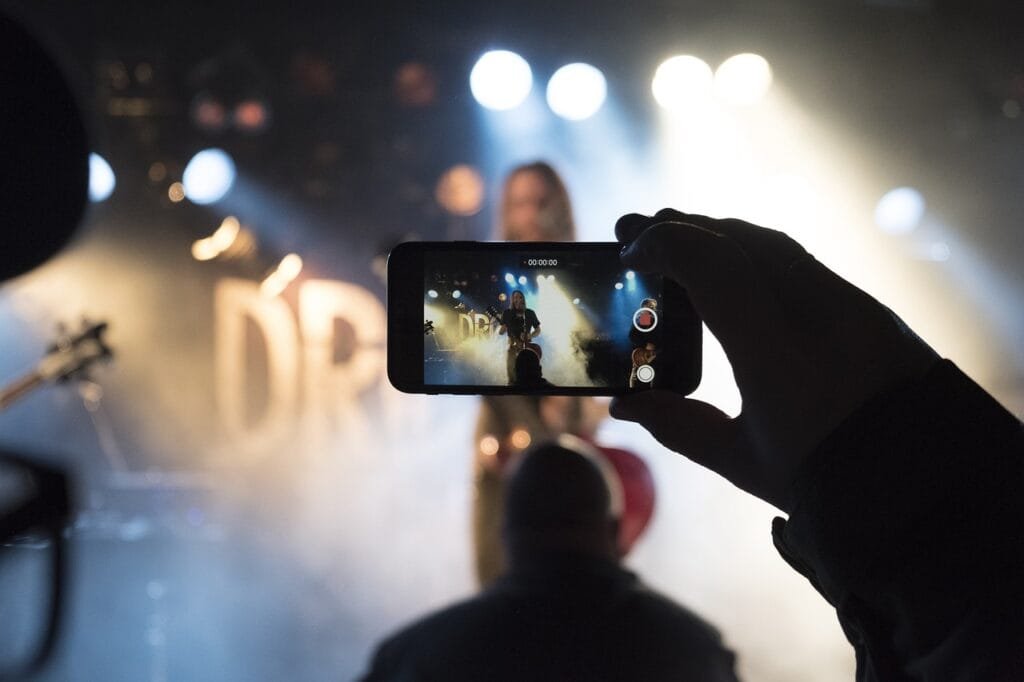This Article has been revised, edited and added to, by Poulomi Chakraborty.
- The Pulsating World of Events in the Travel Sector:
- Crafting Content Around Events: The Cornerstone of Link Building:
- Outreach and Partnerships: Strengthening the Event-Link Building Nexus:
- Utilizing Social Media to Amplify Event-Based Link Building:
- Monitoring & Analysis: The Feedback Loop:
- Challenges & Pitfalls to Avoid in Event-Based Link Building:
- Leveraging Tools and Platforms:
- Harnessing Analytics and SEO Tools for Insightful Decision Making
- Exploiting Social Media Listening Tools for Engagement and Outreach
- Utilizing Content Management Systems for Agile Content Creation and Distribution
- Employing Link Building and Outreach Platforms for Efficient Collaboration
- A Strategic Approach to Tool Utilization
- Conclusion:
In the bustling world of digital marketing, the phrase “content is king” still holds sway. Yet, the scepter that content wields is amplified considerably by robust, high-quality link-building strategies. One of the most dynamic and yet often underutilized tactics in the arsenal of link-building is event-based link building. This strategy becomes even more potent when applied to the travel sector, an industry intrinsically tied to events, seasons, and time-sensitive promotions. This article sheds light on the potential of event-based link building in travel SEO, showcasing how brands can harness the ephemerality of events to build lasting digital legacies.
The Pulsating World of Events in the Travel Sector:

In the realm of travel and tourism, events act as powerful catalysts, creating spikes in demand that savvy marketers can leverage to their advantage. This phenomenon extends beyond the confines of global spectacles to include a myriad of local and niche happenings.
Recognizing the multifaceted nature of events—ranging from international sports competitions to regional art festivals—is crucial for startup founders looking to tap into this vibrant market. The key lies in identifying which events resonate most profoundly with your target audience, thereby allowing you to craft your marketing strategies around these focal points.
Crafting a Content Strategy that Resonates with Event Attendees
A strategic approach to content creation is paramount. This involves developing a deep understanding of the interests, needs, and behaviors of event attendees. For instance, a startup focusing on luxury travel might center its content around premium accommodations and exclusive experiences at high-profile fashion weeks or film festivals. Conversely, a company targeting adventure travelers could explore lesser-known local events that offer unique thrills, such as off-the-beaten-path endurance races or outdoor challenges.
To truly engage your audience, consider the emotional and experiential aspects of the events you’re highlighting. Stories of personal transformation, adventure, and discovery tied to these events can significantly enhance the appeal of your content, making it not only a resource for practical information but also a source of inspiration.
Leveraging Data to Identify Emerging Trends
In today’s data-driven marketing landscape, leveraging analytics to identify emerging trends in event-based travel is non-negotiable. Tools like Google Trends and social media analytics can provide invaluable insights into growing interests in specific types of events or destinations. Additionally, monitoring competitors’ content and backlink strategies around events can uncover gaps in the market or innovative angles yet to be explored.
Armed with this data, startups can prioritize their content creation efforts, focusing on areas with the highest potential for engagement and link-building success. For example, if analysis reveals a growing interest in sustainable travel practices at music festivals, a startup could create a series of in-depth guides on eco-friendly festival experiences, featuring interviews with organizers and attendees, thus positioning itself as a thought leader in this niche.
Building Relationships with Event Organizers and Local Communities
A strategic partnership with event organizers and local communities can be a game-changer for startups. Such collaborations not only provide access to exclusive content and insider perspectives but also open up opportunities for co-marketing efforts and shared link-building initiatives. Establishing a strong relationship with these stakeholders requires a genuine interest in adding value to the event and its community, rather than merely seeking promotional gains.
Engaging in co-branded content creation, sponsoring portions of the event, or offering your platform for guest posts from organizers or local influencers are ways to foster these partnerships. In return, these collaborations can yield high-quality backlinks from authoritative sites, significantly boosting your SEO efforts and online visibility.
Harnessing the Power of Events for Strategic Growth
The pulsating world of events in the travel sector presents a wealth of opportunities for startups willing to dive deep into the intricacies of event-based demand. By understanding the dynamics of this demand, crafting resonant content, leveraging data for insights, and building meaningful relationships with key stakeholders, startups can harness the power of events to drive strategic growth. This approach not only enhances link-building efforts but also positions brands as integral players in the vibrant tapestry of travel and tourism.
Crafting Content Around Events: The Cornerstone of Link Building:

At the heart of successful event-based link building lies the ability to craft content that not only informs but also captivates and engages. This requires a nuanced understanding of the event itself, its audience, and the unique value your brand can offer in relation to it. A strategic approach involves segmenting your content to cater to different phases of the event lifecycle, ensuring that each piece serves a specific purpose in drawing in your target demographic and encouraging them to share and link back to your content.
Pre-Event Strategy: Building Anticipation and Authority
In the lead-up to events, the goal of your content should be twofold: to build anticipation among potential attendees and to establish your brand as an authoritative source of information. This involves diving deep into the needs and questions your audience might have before the event. For example, detailed guides on what to expect, how to prepare, or exclusive interviews with event organizers can offer unique insights that readers won’t find elsewhere.
The art of storytelling can play a significant role here, with narratives that highlight the history of the event, profiles of participants, or the impact of the event on the local community. Such content not only enriches the reader’s understanding but also enhances the emotional connection, making it more likely that they will engage with and share your content.
During the Event: Capturing and Sharing the Live Experience
As the event unfolds, the immediacy of live coverage offers a prime opportunity to engage audiences in real-time. Employing a mix of blog posts, social media updates, and even live streaming can create a dynamic content ecosystem that captures the excitement of the moment. Collaborating with influencers or attendees who are sharing their experiences can amplify your reach and add a layer of authenticity to your coverage.
This phase is about flexibility and responsiveness. Monitoring social media conversations and trends related to the event can provide quick insights into what content is resonating with the audience, allowing you to adjust your strategy on the fly. The aim is to become the go-to source for those wanting to experience or learn about the event from afar.
Post-Event Reflection: Cementing the Experience and Lessons Learned
After the event, your content should shift towards reflection, analysis, and the distillation of key takeaways. This could involve in-depth reviews of the event, interviews with participants about their experiences, or thought leadership pieces on the trends observed during the event and their implications for the future.
This phase is critical for solidifying the relationship you’ve built with your audience throughout the event. By providing comprehensive post-event coverage, you not only offer value to those who attended but also to those who may be considering attending in the future. Additionally, this content can serve as a valuable resource for other websites and blogs looking to discuss the event, thereby generating backlinks.
Continuous Engagement: Beyond the Event Lifecycle
The end of an event does not signify the end of its potential for inspiring compelling content. Historical retrospectives, impact studies, and planning guides for future events are examples of how the conversation can be kept alive. By continuing to produce valuable, event-related content, you maintain relevance and keep your audience engaged, laying the groundwork for future link-building opportunities.
A Strategic Blueprint for Event-Centric Content
In the dynamic landscape of event-based link building, crafting content that resonates with your audience at every stage of the event lifecycle is paramount. This strategic blueprint emphasizes the importance of understanding your audience, leveraging real-time engagement, and providing continuous value. By following this approach, startup founders can create a robust foundation for link-building efforts that not only enhance their SEO performance but also establish their brand as a leading voice in their niche.
Outreach and Partnerships: Strengthening the Event-Link Building Nexus:

The foundation of a successful event-based link-building strategy is rooted in the relationships you build with event organizers, attendees, and other stakeholders. These relationships are not just transactional; they should be nurtured with the aim of creating mutual value over the long term. Engaging with these groups requires a thoughtful approach, where understanding their needs and how your brand can meet them is paramount.
Engaging with Event Organizers for Mutual Benefit
Building a rapport with event organizers is a critical step in establishing a strong link-building foundation. This involves more than just reaching out with a proposal; it requires a genuine interest in the event and a clear demonstration of how your involvement can add value. For startup founders, offering to create exclusive content that promotes the event, or providing a platform for event updates and announcements, can be a great way to start this relationship on the right foot.
Beyond initial contact, consider how you can support the event’s goals through your services or content. This could mean offering your platform for live-streaming sessions, conducting pre-event interviews with speakers, or even facilitating post-event discussions that extend the life of the event online. These initiatives not only provide valuable content for your audience but also create opportunities for natural link exchanges that benefit both parties.
Leveraging Attendees and Participants as Brand Ambassadors
Attendees and participants of events, especially those with their own digital presence, can become powerful allies in your link-building efforts. Engaging with this group means providing them with something of value that they can share with their own audiences. Exclusive insights, behind-the-scenes access, or even simple recognition can go a long way in encouraging them to link back to your content.
One effective strategy is to create a dedicated space on your platform for attendee-generated content, such as blogs, photos, or videos from the event. By offering a way for their experiences to be highlighted and shared, you incentivize participants to contribute content, which in turn can generate backlinks and increase visibility for both your brand and the event.
Forming Strategic Partnerships with Local Businesses
Local businesses often have a vested interest in the success of events happening in their vicinity. For travel startups, partnering with these businesses can offer a unique angle for content creation that benefits both parties. For instance, collaborating on exclusive offers for event attendees, or co-creating content that highlights local attractions or services, can provide compelling reasons for both your audience and local businesses to engage and link to your content.
These partnerships can also extend beyond a single event, laying the groundwork for ongoing collaboration that supports future link-building efforts. The key is to ensure that these partnerships are built on a foundation of shared value, where both your startup and the local business benefit from increased visibility and traffic.
Utilizing Social Media to Amplify Outreach and Partnerships
Social media platforms offer a dynamic environment for amplifying the reach of your content and partnerships. Engaging with event organizers, attendees, and local businesses on these platforms can help to strengthen relationships and encourage the sharing of content. Regular updates, shared promotions, and interactive content such as polls or live Q&As can increase engagement, fostering a community around your brand and the events you support.
Moreover, social media can serve as a platform for recognizing and thanking your partners and contributors, which can reinforce positive relationships and encourage continued collaboration. Highlighting successful partnerships and shared achievements can also attract new link-building opportunities, as others see the value in working with your brand.
A Symbiotic Approach to Event-Based Link Building
In the context of event-based link building for travel SEO, outreach and partnerships are not just about securing backlinks; they’re about building a community of interconnected stakeholders who share a common interest in the success of the event. By focusing on cultivating meaningful relationships, engaging with key players for mutual benefit, and leveraging social media to amplify these efforts, startup founders can create a powerful network that supports not only link-building objectives but also broader business goals. This symbiotic approach ensures that your brand becomes an integral part of the event ecosystem, driving visibility, engagement, and growth.
Utilizing Social Media to Amplify Event-Based Link Building:

In the fast-paced world of digital marketing, social media stands out as a critical channel for amplifying your event-based link-building efforts. A well-crafted social media strategy enables startups to engage with their audience, increase their content’s reach, and ultimately drive more backlinks to their site. However, this requires more than just posting about the event; it demands a strategic approach that aligns with your overall marketing goals and leverages the unique characteristics of each social platform.
Engaging Your Audience Before, During, and After Events
The key to a successful social media campaign lies in engagement. Before the event, use social media to build anticipation. Share sneak peeks, behind-the-scenes content, or interviews with event organizers and participants. This not only generates interest but also encourages your followers to share your content, expanding its reach and potential for backlinks.
During the event, real-time updates can capture the excitement and energy of the moment. Live-tweeting, Instagram stories, and Facebook Live sessions allow your audience to experience the event as it happens. Encourage interaction by asking for comments, sharing polls, and reposting user-generated content. This direct engagement boosts your visibility and fosters a sense of community among your followers.
After the event, continue the conversation by sharing highlights, key takeaways, and thank-you messages to speakers, attendees, and organizers. Post-event content keeps the momentum going, encouraging further shares and discussions that can lead to additional backlinks.
Leveraging Hashtags for Increased Visibility
Hashtags are an invaluable tool in your social media arsenal, serving as beacons that attract attention to your content. Use event-specific hashtags to ensure your posts are discoverable by those interested in the event. Additionally, creating a unique hashtag for your brand’s event coverage can help track conversations and engagement around your content. Hashtags not only increase your visibility but also enhance the likelihood of your content being shared across social networks, amplifying your link-building efforts.
Collaborating with Influencers and Brand Ambassadors
Influencers and brand ambassadors can dramatically extend the reach of your social media content. Identify influencers within your niche who share your audience’s interests and are likely to attend or have an interest in the event. Collaborating with these influencers for event coverage or exclusive content can introduce your brand to a wider audience, increasing the chances of your content being linked to from various sources.
When selecting influencers, look beyond follower counts to engagement rates and the relevance of their audience to your brand. A well-aligned influencer collaboration can generate authentic content that resonates with your target audience and drives meaningful engagement.
Analyzing and Adapting Your Strategy
Social media analytics provide critical insights into the performance of your event-based content. By regularly reviewing metrics such as reach, engagement, and click-through rates, you can understand what resonates with your audience and refine your strategy accordingly. Pay special attention to posts that generate high levels of engagement or lead to increased backlinking, as these indicate successful content formats or topics that you can replicate in future campaigns.
A Multi-Faceted Approach to Social Media and Event-Based Link Building
Utilizing social media to amplify event-based link building is a dynamic and interactive process that requires strategic planning, creativity, and adaptability. By engaging your audience throughout the event lifecycle, leveraging hashtags for visibility, collaborating with influencers, and continuously analyzing your performance, you can enhance your social media presence and drive significant improvements in your link-building efforts. This multi-faceted approach not only boosts your SEO performance but also strengthens your brand’s relationship with its audience, laying the foundation for long-term success in the digital landscape.

Related: Check out our free SEO suite

Monitoring & Analysis: The Feedback Loop:
The dynamism of digital marketing, particularly within the travel sector, necessitates a commitment to ongoing monitoring and analysis. This isn’t merely about tracking metrics; it’s about creating a feedback loop that informs every aspect of your event-based link-building strategy. By understanding how different elements of your campaign perform, you can make data-driven decisions that enhance your effectiveness and ROI over time.
Setting Up Effective Tracking Mechanisms
Before diving into analysis, it’s crucial to set up comprehensive tracking mechanisms. This involves configuring your analytics tools to track not only basic metrics like traffic and backlinks but also more nuanced indicators of engagement and conversion. Utilizing tools such as Google Analytics, Ahrefs, and SEMrush, ensure you’re monitoring which events and related content pieces are driving the most valuable traffic to your site. Additionally, implementing UTM parameters on your links can provide deeper insights into how specific content and outreach efforts are performing.
Analyzing Traffic and Engagement Trends
Once your tracking is in place, the next step is to dive deep into the data to understand the nuances of your audience’s behavior. Look for patterns in how different types of event-related content perform in terms of attracting visitors and encouraging engagement. Are there particular events that consistently drive more traffic or generate more backlinks? Do certain types of posts (e.g., live coverage, interviews, guides) resonate more strongly with your audience?
Understanding these trends can help you refine your content strategy, focusing your efforts on the types of events and content that offer the most significant returns. Moreover, it’s important to identify the source of your traffic. Organic search, social media referrals, and direct links all tell a different story about how your audience is finding and interacting with your content.
Leveraging Feedback for Content Optimization

Feedback doesn’t just come in the form of numbers and charts; direct feedback from your audience is equally valuable. Pay attention to comments on your blog, social media interactions, and direct communications from your audience. What questions are they asking? What feedback do they have about your event coverage or related content?
This qualitative data can provide insights that are not always apparent from quantitative analysis alone. It can inform not only the topics you choose to cover but also the tone, format, and distribution channels you use. Engaging with your audience in this way can also foster a sense of community and loyalty, enhancing the long-term effectiveness of your link-building efforts.
Refining Your Strategy with Iterative Learning
The final piece of the monitoring and analysis puzzle is using the insights you’ve gathered to refine your strategy. This involves both doubling down on what works and being willing to pivot away from strategies that aren’t delivering the expected results. It’s a process of continuous learning and adaptation, where each event and each piece of content serves as an opportunity to learn more about your audience and what drives them to engage and link back to your site.
This iterative approach should also extend to your SEO practices. As you gather more data on the types of backlinks and keywords that are most effective for your site, refine your SEO strategy to capitalize on these insights. This may involve focusing on specific types of events, targeting particular keywords, or adjusting your outreach and partnership efforts.
The Power of Informed Action
In the ever-evolving landscape of travel SEO, the ability to monitor, analyze, and adapt based on data is invaluable. By establishing a comprehensive feedback loop, startup founders can ensure their event-based link-building efforts are not only effective but also continuously improving. This approach enables brands to stay ahead of the curve, offering content that truly resonates with their audience and builds the kind of authoritative backlinks that drive long-term SEO success.
Challenges & Pitfalls to Avoid in Event-Based Link Building:
Event-based link building presents a unique set of challenges and complexities that, if not carefully managed, can undermine the success of your SEO efforts. Understanding these challenges is the first step toward developing strategies to overcome them, ensuring your event-based content not only reaches but also resonates with your target audience.
The Double-Edged Sword of Timeliness
Timeliness is both an asset and a challenge in event-based link building. The need to stay ahead of the curve, capturing attention before, during, and immediately after events, requires meticulous planning and execution. However, this same emphasis on timeliness can lead to rushed content or missed opportunities if not managed correctly.
Strategic Planning for Timely Execution: Develop a content calendar that aligns closely with the event schedule, allowing ample time for content creation, outreach, and promotion. This includes pre-event hype, real-time coverage, and post-event analysis. Use tools and platforms that enable quick content updates and sharing to keep pace with the event dynamics.
Overcoming Content Saturation
With many brands vying for attention around popular events, content saturation becomes a significant hurdle. Standing out in a crowded digital space requires more than just timely content; it demands innovative and engaging approaches that offer unique perspectives or insights.
Innovating to Stand Out: Differentiate your content by leveraging unique angles or untapped stories related to the event. This could involve highlighting local cultural aspects, focusing on niche interests within the event, or offering in-depth guides that go beyond surface-level coverage. Creativity and innovation in how you present content—through interactive media, compelling visuals, or immersive storytelling—can also help cut through the noise.
Authenticity vs. Commercialization
The allure of leveraging popular events for link-building purposes can sometimes lead to content that feels overly commercialized or disconnected from the event’s ethos. This not only detracts from user engagement but can also harm your brand’s credibility.
Balancing Promotion with Authenticity: Ensure your content aligns with the spirit and values of the event. This involves thorough research and understanding of the event’s history, purpose, and community. Your content should add value to the conversation around the event, offering insights, entertainment, or information that enriches the experience for your audience.
Adapting to the Event’s Evolution

Events, especially annual ones, evolve over time. What worked for one edition of an event may not be as effective the next year due to changes in themes, audiences, or even the global context.
Staying Adaptable and Informed: Keep a close eye on how events evolve, adapting your content and strategies to align with these changes. Engage with the event community throughout the year, not just leading up to the event, to stay informed about emerging trends and shifts in audience expectations.
Cultivating a Resilient Event-Based Link Building Strategy
The challenges inherent in event-based link building demand a thoughtful, strategic approach. By planning for timeliness, innovating to stand out, maintaining authenticity, and staying adaptable, startup founders can navigate these complexities effectively. Cultivating a resilient strategy involves continuous learning and evolution, ensuring that your efforts not only overcome the challenges but also capitalize on the unique opportunities presented by event-based link building. This not only enhances your SEO performance but also strengthens your brand’s position as a valuable participant in the vibrant ecosystem of travel and events.
Leveraging Tools and Platforms:
In the intricate dance of digital marketing, having the right tools and platforms at your disposal can dramatically enhance your event-based link-building strategies. These resources not only streamline your workflow but also provide deep insights and opportunities for engagement that might otherwise be overlooked. For startup founders navigating the competitive landscape of travel SEO, understanding how to effectively leverage these tools can be a game-changer.
Harnessing Analytics and SEO Tools for Insightful Decision Making
The backbone of any successful link-building strategy is a solid understanding of your SEO performance and audience behavior. Tools like Google Analytics, Ahrefs, SEMrush, and Moz offer a treasure trove of data that can guide your event-based content strategy.
Deep Diving into Analytics for Content Optimization: Use these tools to analyze which pieces of event-based content are driving traffic, generating engagement, and attracting backlinks. Look for patterns in audience behavior, such as the types of events that generate the most interest or the content formats that engage users the most. This data-driven approach allows you to refine your content strategy over time, focusing on what truly resonates with your target audience.
Exploiting Social Media Listening Tools for Engagement and Outreach
Social media platforms are not just channels for distribution; they are also rich sources of real-time feedback and engagement. Tools like Hootsuite, BuzzSumo, and Sprout Social enable brands to monitor mentions of specific events, track hashtags, and engage with users in real-time.
Engaging with Your Audience Where They Are: Utilize these tools to identify trending conversations around events and participate in them. This can help increase your brand’s visibility, drive traffic to your event-based content, and foster relationships that could lead to backlinks. Additionally, social listening can uncover potential partners for content collaboration or link exchange, such as influencers and bloggers who are also engaging with the event.
Utilizing Content Management Systems for Agile Content Creation and Distribution
In the fast-paced world of event marketing, the ability to quickly create, update, and distribute content is crucial. Content Management Systems (CMS) like WordPress, coupled with SEO plugins like Yoast SEO, provide a flexible platform for publishing and optimizing content in real-time.
Streamlining Content Production: Leverage the features of your CMS to schedule pre-event content, publish live updates during the event, and distribute post-event analyses. SEO plugins can help ensure that your content is optimized for search engines, increasing the likelihood of ranking well for event-related queries and attracting backlinks.
Employing Link Building and Outreach Platforms for Efficient Collaboration
Platforms like BuzzStream and Pitchbox offer streamlined solutions for managing outreach and link-building campaigns. These tools can be particularly useful when looking to connect with other websites, bloggers, and influencers for content collaboration and link exchange around events.
Building and Managing Relationships: Use these platforms to keep track of your outreach efforts, from initial contact to follow-up. They can help you personalize your communication, monitor the status of each outreach attempt, and analyze the effectiveness of your campaigns, ensuring that you’re building meaningful relationships that contribute to your link-building goals.
A Strategic Approach to Tool Utilization
For startup founders looking to navigate the complexities of event-based link building in the travel sector, the strategic use of tools and platforms can provide a significant competitive edge. By leveraging analytics for insight, social media tools for engagement, CMS for agile content management, and outreach platforms for collaboration, startups can enhance their visibility, engage their audience, and build a strong backlink profile. This holistic approach not only streamlines the process but also maximizes the impact of each effort, driving success in the ever-evolving landscape of travel SEO.
Conclusion:
In the vast, interconnected web of digital marketing, events stand out as beacons of authenticity and immediacy. When these events are seamlessly woven into the travel SEO tapestry, what emerges isn’t just a strategy; it’s a narrative. A narrative that celebrates the wonder of travel, the allure of discovery, and the joy of shared experiences.
Event-based link building for travel SEO is more than a mere amalgamation of techniques and best practices. It’s an invitation. An invitation to explore new horizons, to embrace the beauty of fleeting moments, and to stitch together a digital mosaic that reflects the vibrancy and diversity of the world we live in.
For travel brands looking to chart their course in the digital seas, event-based link building offers both a compass and an anchor. By capturing the essence of events and translating them into link-worthy content, these brands not only enhance their online visibility but also cement their reputation as storytellers and curators of unforgettable experiences.
As the realms of travel and digital continue to intersect and evolve, those at the helm of travel SEO strategies would do well to remember the timeless allure of events. For in every event, there lies a story waiting to be told, a memory waiting to be relived, and a link waiting to be forged.
Read Next
- SEO for Culinary Tourism: A Guide
- SEO for Business Hotels: Targeting the Corporate Traveler
- SEO Strategies for Cruise Operators
- SEO for Adventure Travel Companies
- How to Optimize for Different Travel Seasons Globally





















Comments are closed.